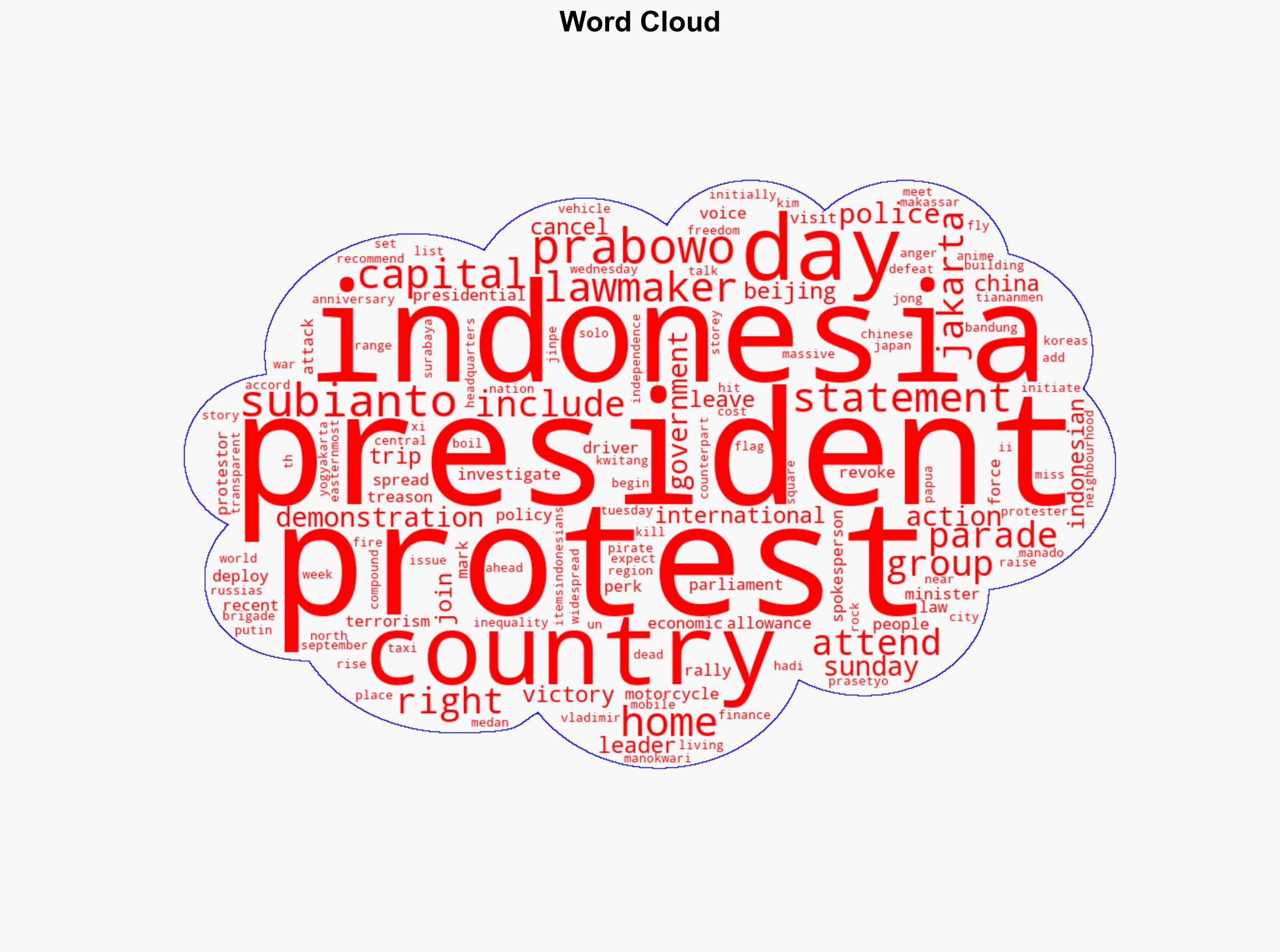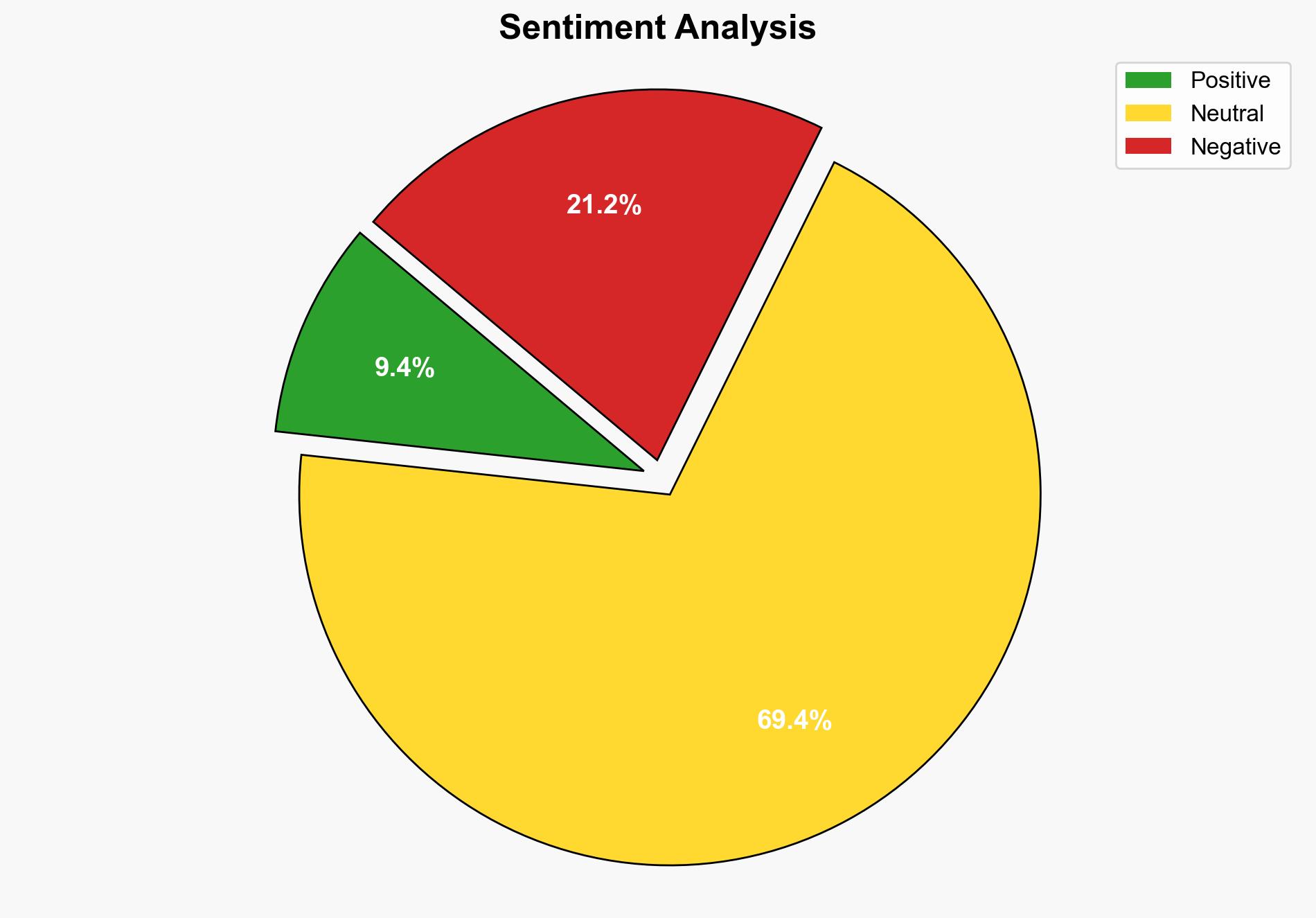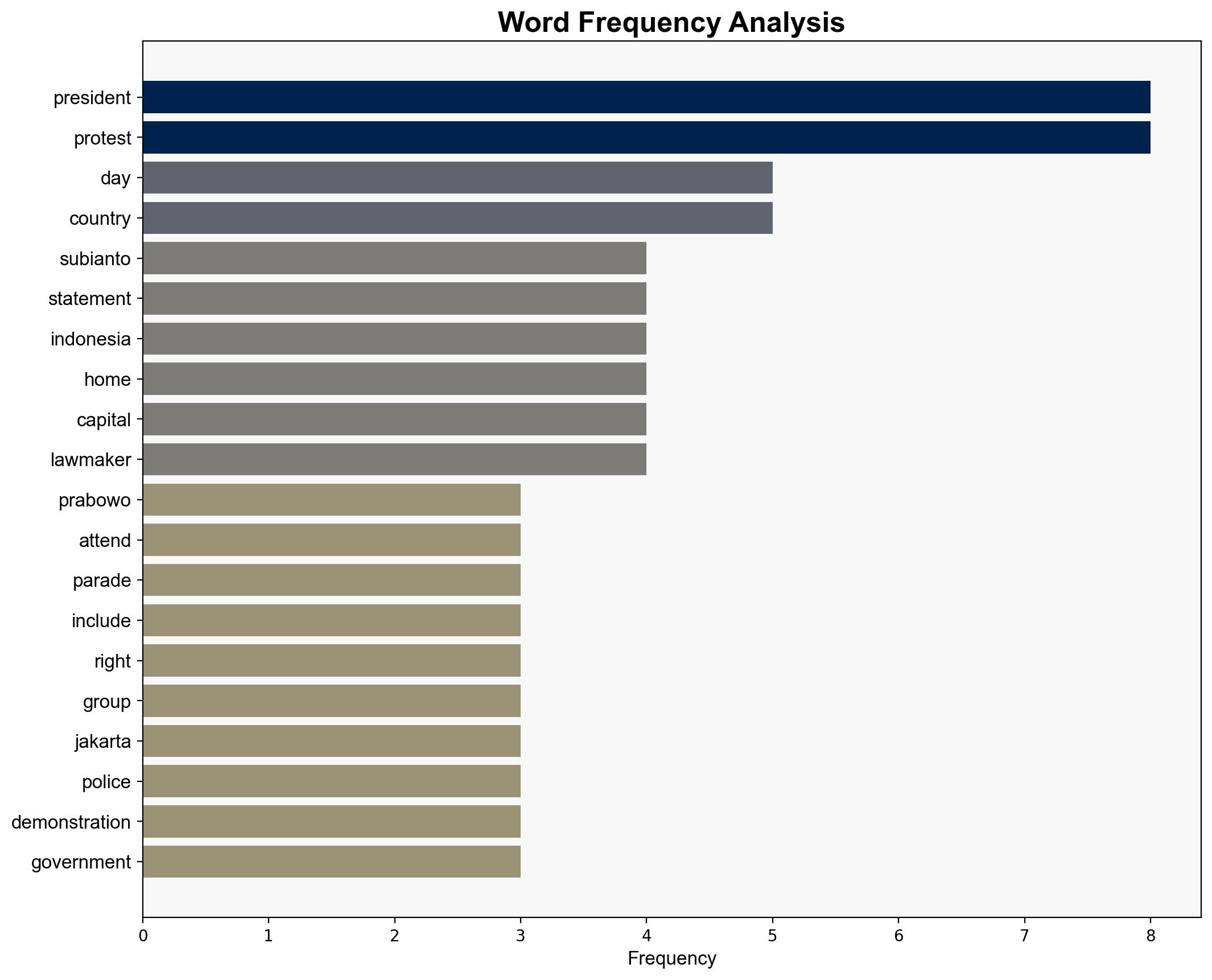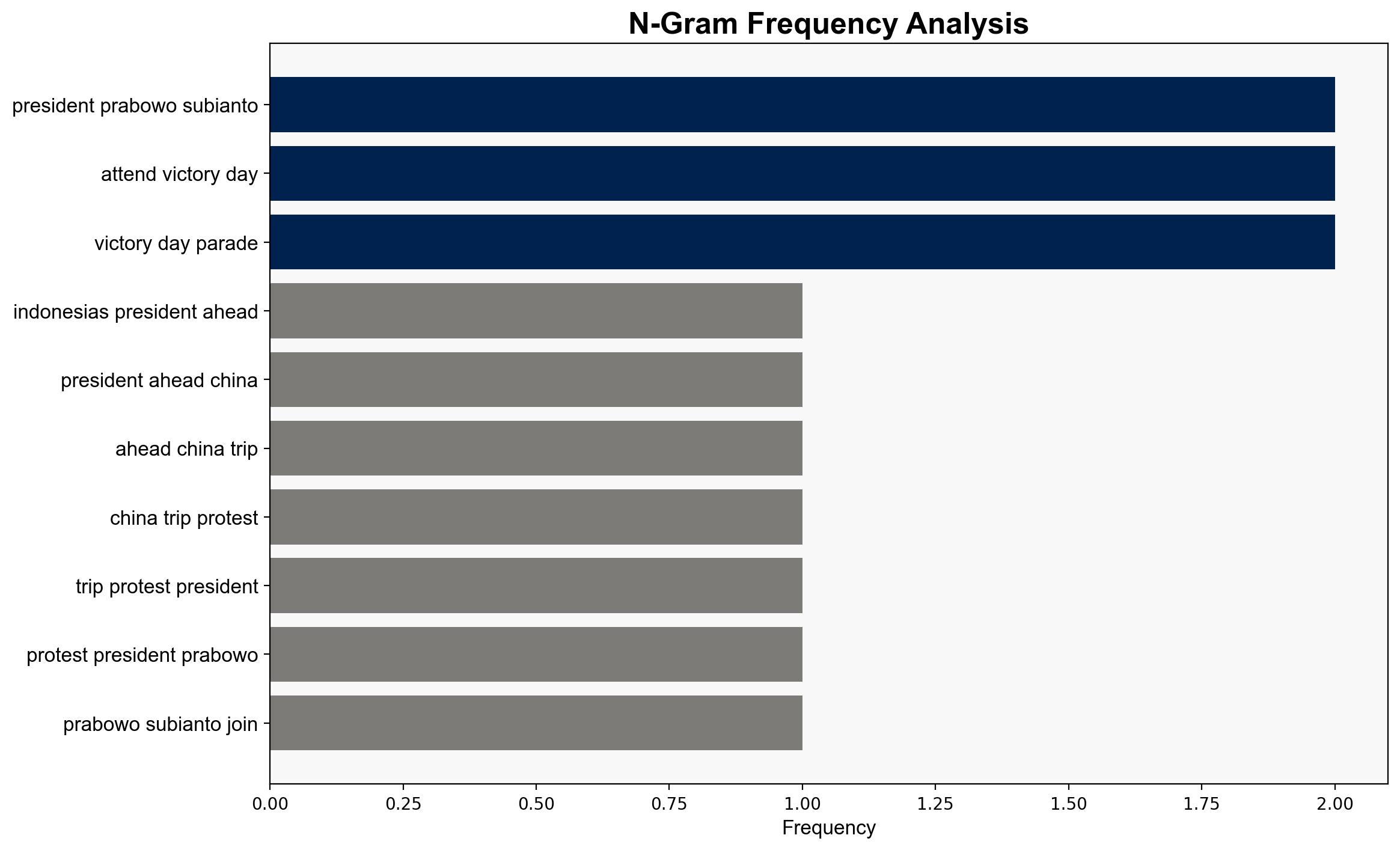Indonesias president to go ahead with China trip despite protests – Al Jazeera English
Published on: 2025-09-02
Intelligence Report: Indonesias president to go ahead with China trip despite protests – Al Jazeera English
1. BLUF (Bottom Line Up Front)
Indonesia’s decision to proceed with the China trip amidst domestic unrest suggests a prioritization of international diplomacy over immediate domestic stability. The hypothesis that the trip is a strategic move to strengthen international alliances is better supported. Confidence level: Moderate. Recommended action: Monitor domestic unrest for potential escalation and prepare diplomatic channels to address international concerns regarding Indonesia’s internal stability.
2. Competing Hypotheses
1. **Hypothesis A**: The Indonesian president’s decision to proceed with the China trip is a strategic move to solidify international alliances, particularly with China, North Korea, and Russia, despite domestic unrest.
2. **Hypothesis B**: The decision reflects a miscalculation of the domestic situation, underestimating the potential for protests to escalate and affect national stability.
Using ACH 2.0, Hypothesis A is better supported due to the presence of high-profile international leaders at the event, indicating the importance of the diplomatic engagement. Hypothesis B is less supported as there are indications of attempts to address domestic issues, such as the investigation into protest-related deaths and policy changes.
3. Key Assumptions and Red Flags
– **Assumptions**: The government believes international diplomacy will yield long-term benefits that outweigh short-term domestic unrest.
– **Red Flags**: The scale and intensity of protests could be underestimated, potentially leading to greater instability. The effectiveness of domestic policy changes in quelling unrest remains uncertain.
– **Blind Spots**: Lack of detailed information on the government’s internal assessment of the protest threat level.
4. Implications and Strategic Risks
– **Economic Risks**: Prolonged unrest could deter foreign investment and impact economic growth.
– **Geopolitical Risks**: Strengthening ties with China, North Korea, and Russia may shift Indonesia’s geopolitical alignment, affecting relations with Western nations.
– **Psychological Risks**: Continued protests could erode public confidence in the government, leading to further unrest.
– **Escalation Scenarios**: If protests intensify, there could be a need for increased security measures, potentially leading to human rights concerns.
5. Recommendations and Outlook
- **Mitigation**: Enhance communication with protest leaders to address grievances and prevent escalation.
- **Exploitation**: Leverage international diplomacy to gain support for domestic stability initiatives.
- **Scenario Projections**:
- **Best Case**: Successful diplomatic engagement strengthens Indonesia’s international position, and domestic unrest subsides with effective policy changes.
- **Worst Case**: Protests escalate, leading to significant instability and international criticism.
- **Most Likely**: Continued unrest with gradual stabilization as diplomatic efforts yield economic and strategic benefits.
6. Key Individuals and Entities
– Prabowo Subianto
– Kim Jong Un
– Vladimir Putin
– Xi Jinping
– Prasetyo Hadi
– Affan Kurniawan
– Usman Hamid
7. Thematic Tags
national security threats, geopolitical strategy, domestic unrest, international diplomacy





